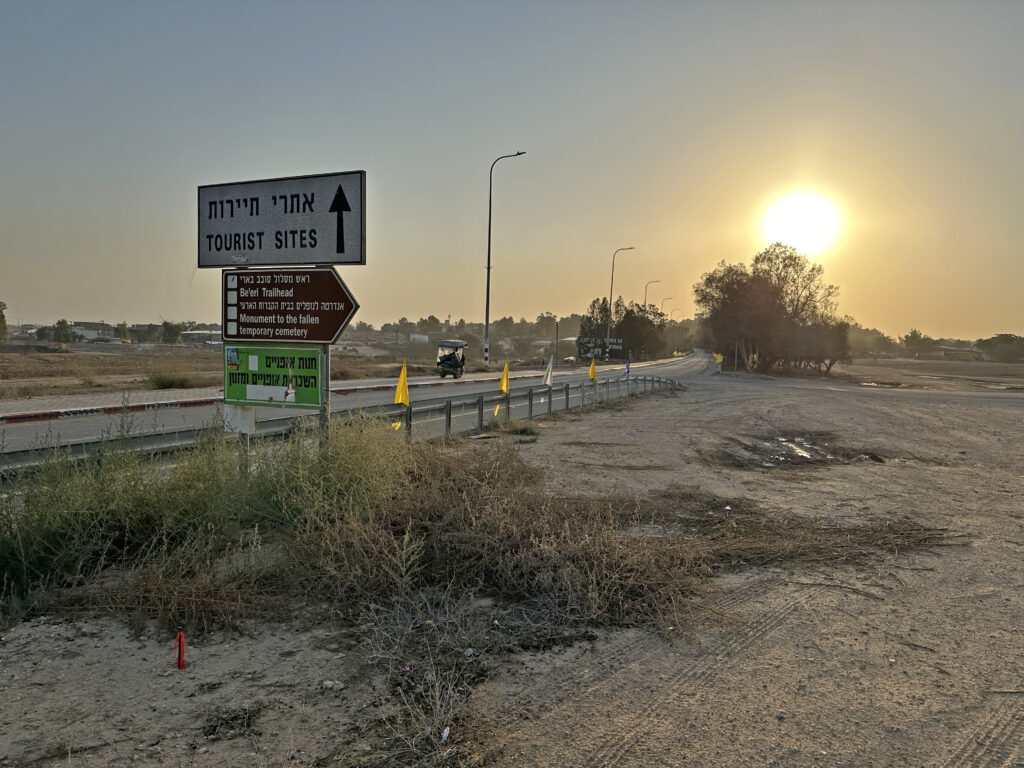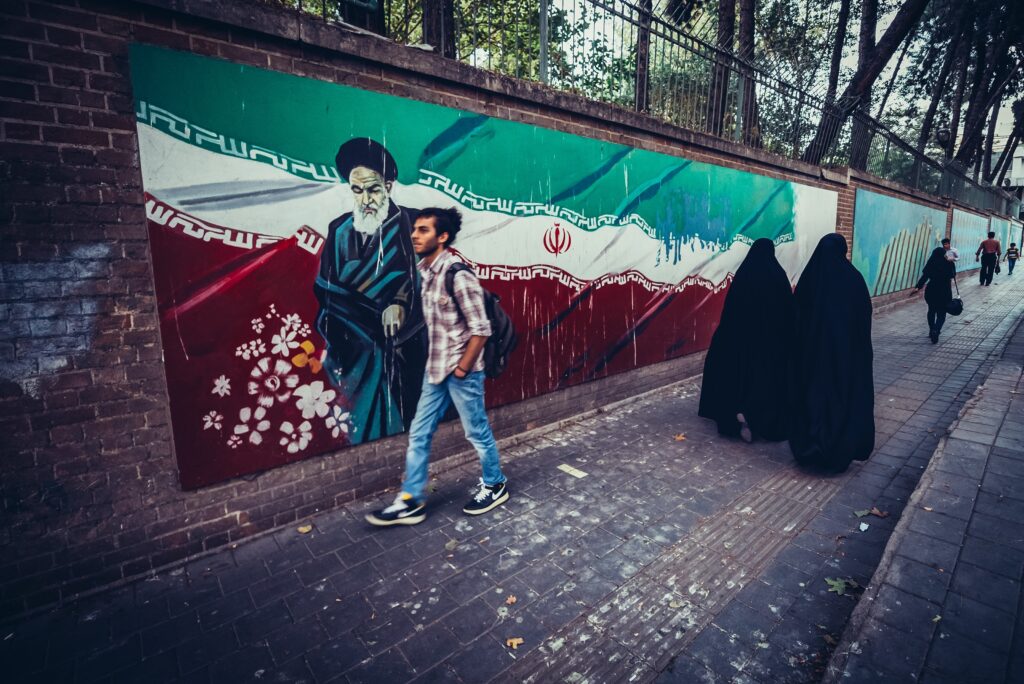UPDATES
Ignoring history: the West Bank, BDS, and the EU’s Cyprus experience
October 16, 2013 | Daniel Meyerowitz-Katz

Daniel Meyerowitz-Katz
In increasing its efforts to isolate and punish Israel, the European Union has failed to learn from its failed policy towards northern Cyprus.
In July this year, the European Commission adopted a set of guidelines for the EU aimed at punishing Israel for its presence in the West Bank and East Jerusalem by restricting funding to “Israeli entities or to their activities in the territories occupied by Israel since June 1967”. Israeli-based think tank the Kohelet Policy Forum has released an excellent paper on the international legal ramifications of these guidelines, written by two eminent international legal scholars: Professor Avi Bell from Bar Ilan University and the University of San Diego and Professor Eugene Kontorovich from Northwestern University.
The paper makes a number of scathing criticisms of the guidelines. For example, it points out that whilst the guidelines claim to be based on the EU’s commitments under international law, even assuming the controversial anti-Israel legal claims are correct, meaning Israel is forbidden from ‘transferring’ its people into the West Bank, there are no grounds for punishing non-government entities in the West Bank because they happen to be of Israeli nationality. As Bell and Kontorovich observe, this was even confirmed by a recent judgment by the Court of Appeal in Versailles, France (see this blog’s coverage HERE).
The two scholars also make a compelling case for the harm that the guidelines will do to the peace process–noting that they actually contradict previous EU-recognised agreements between the Israelis and Palestinians, such as the Oslo Accords, by explicitly rejecting any Israeli sovereignty over the pre-1967 borders. All previous peace proposals have included etablishing Israeli sovereignty over some areas within those borders in exchange for land swaps, which the Oslo Accords provided were to be negotiated between the parties. No EU decision until now has explicitly pre-judged the outcome.
Most notably, the paper points out the hypocrisy in the guidelines relative to the EU’s stance in other situations. As Kontorovich explained in an op-ed in the Jerusalem Post, the EU actually intentionally directs funding towards other territories under belligerent occupation, including in the Moroccan-occupied Western Sahara, Russian-occupied Abkhazia, and Turkish-occupied northern Cyprus:
Yet it turns out that despite the guidelines, the EU still knowingly and purposefully provides substantial direct financial assistance to settlements in occupied territory – in Turkish-occupied Northern Cyprus, that is. So the EU funds the occupation of an EU member state. Turkey’s invasion and occupation of Cyprus in 1974 was condemned the UN Security Council, and the EU’s official policy is that the Turkish occupation is illegitimate, and Turkey must completely withdraw. The EU does not recognize the Turkish government in Northern Cyprus.
Nonetheless, the EU maintains an entire separate program to direct funds to Northern Cyprus.
The comparison between the guidelines and northern Cyprus can be taken further. The EU’s initial policy towards northern Cyprus was an abject failure, and has since been reversed; yet the EU seems to be increasingly replicating the same approach in its dealings with Israel. The lessons of Cyprus, it seems, did not sink in.
A brief history of the ‘Cyprus Dispute’
In the 1950s, the majority Greek population of Cyprus began a campaign against the island’s ruler, Britain–sometimes employing terrorist tactics–to achieve a union with Greece (‘enosis‘). The campaign was opposed from the outset by the minority Turkish Cypriot population who, fearful of being ruled-over by their historic enemies, advocated a policy of total separation (‘taksim‘). Britain left Cyprus in 1960 when the Republic of Cyprus was proclaimed, establishing a British-mandated power-sharing arrangement between the island’s two major ethnic factions, including a democratically elected Greek Cypriot President and Turkish Cypriot Vice President.
Three years later, a Greek Cypriot power-grab led to a constitutional crisis, which in turn caused fighting to break out between the two communities. The violence killed hundreds, and both Greece and Turkey intervened on behalf of their respective ethnic communities. When the dust settled, tens of thousands of Turkish Cypriots had been driven into defended enclaves.
The next 11 years saw periodic attempts at a UN-brokered peace agreement amid flare-ups of violence. The Greek Cypriots continued to pursue enosis, whilst the Turkish Cypriots would not agree to any settlement that did not afford them substantial autonomy–which the Greek Cypriots consistently refused to grant. The turning point came in 1974: in 1968 President Archbishop Makarios of Cyprus had abandoned unification with Greece and began pursuing a more pragmatic solution. As a consequence, the ruling junta in Greece joined with EOKA-B, a Greek Cypriot nationalist militia, to remove him. The plan came to fruition in a 1974 coup d’état installing EOKA leader Nikos Sampson as President. This prompted Turkey to unilaterally invade Cyprus to secure the Turkish Cypriots.
After several weeks, a ceasefire agreement was signed, leaving Turkey in charge of the northern third of the island. Turkish troops have remained there ever since. Over the course of the 1974 conflict, 40% of the Greek community had fled south and over 50% of the Turkish community had fled north-creating two de facto ethnic enclaves. The UN Security Council repeatedly condemned the situation and called for the withdrawal of all foreign troops from Cyprus. The call landed on deaf ears.
In 1983, the Turkish Cypriots unilaterally declared the independent Turkish Republic of Northern Cyprus (‘TRNC‘). The Security Council immediately condemned the move and refused to recognise the new state. The Turkish invasion had been very unpopular internationally, and the TRNC has consistenly been seen by the vast majority of countries–including the EU states–as no more than an illegitimate Turkish ‘puppet regime’; an excuse for Turkey to maintain its control of northern Cyprus. Consequently, it was shunned by the international community and subjected to decades of isolation.
A Mediterranean parallel?
The approach of the EU and the UN to the situation in Cyprus bears several striking similarities to their approach to Israel and the West Bank. In both cases, the rhetoric has been simplified and overwhelmingly one-sided–with the TRNC bearing repeated condemnations from the EU and various UN organs for its mere existence, and all Israelis living in the West Bank or East Jerusalem being referred to as ‘illegal settlers’. Similar to the Israeli presence in the West Bank, Turkey has shouldered repeated and vehement condemnations from the EU and the UN for its military presence in northern Cyprus, despite the immense complexity surrounding the initial incursion and the lack of realistic options presented for a withdrawal.
The parallel becomes even more poignant when the Turkish ‘settlers’ in northern Cyprus are taken into consideration. This refers to the tens of thousands of Anatolians who were invited by Turkey to move there between 1975-81 in order to replace Greek Cypriot labourers on farms and to further unify Turkish and Turkish Cypriot identity. The settlers themselves, however, were not politically motivated. Their emigration may have been made possible by politics, but they made the move of their own volition; they were mostly uneducated provincial labourers looking for a better life.
The Turkish settlers were moved by Turkey into properties that formerly belonged to Greek Cypriots–a policy which caused understandable resentment amongst the Greek Cypriots. They have also been largely marginalised by the better-educated, metropolitan, and more secular Turkish Cypriots, who see the Anatolian immigrants as uncultured and backwards. In fact, their mutual loathing of the Turkish settlers is the one thing on which Greek and Turkish Cypriots agree. Ironically, rather than strengthening ties between Turkish Cypriots and the Turkish homeland, the arrival of the settlers did more than anything else to bring the Turkish Cypriots closer to their Greek neighbours.
However, the EU and the UN have failed to distinguish between the different communities of Turks on Cyprus and have afforded no agency to the Turkish Cypriots. The tension between the Turkish settlers and the native Turkish Cypriots is not the only nuance that has been ignored; the EU has also failed to acknowledge the ongoing internal struggle between parties in favour of Turkish rule and those advocating a uniquely Turkish-Cypriot identity. This is similar in some respects to their approach towards the Israelis living in the West Bank, who moved there entirely of their own volition and for a whole variety of reasons (and often contrary to Israeli government policies), but who have only ever been treated as a single entity by the EU and UN. By a similar token, the Greek Cypriots have been treated as the PLO/Palestinian Authority were treated from the mid-1970s: as victims; wronged people whose rights have been breached, and who are in no way responsible for the situation in which they find themselves.
In the Cypriot case at least, the UN and EU eventually woke up to a totally different reality.
A shock to the system
The decades-long narrative of the Turkish ‘aggressors’ and Greek Cypriot ‘victims’ began to shift after both Cypriot entities held simultaneous referenda in April 2004 on the Annan Plan–a peace proposal negotiated by then-UN Secretary-General Kofi Annan between Greece, Turkey, and both Cypriot entities, which proposed the unification of Cyprus through creating a bi-national confederation. Annan had intended to resolve the Cypriot conflict before Cyprus’ accession to the EU in May 2004.
The leaders of both Greek Cyprus and Turkish Cyprus campaigned against the referendum, but it was supported by the Turkish government and Mehmet Ali Talat, the previous Prime Minister of the TRNC. The proposal was accepted by 65% of Turkish Cypriots and rejected by 76% of Greek Cypriots. The results of the referenda ran counter to the conventional wisdom of ‘Greek Cypriots good, Turkish Cypriots bad’.
Further, Annan’s account of the negotiations preceding the announcement of the plan and the referenda depicts a Turkish Cypriot leadership eager to engage in negotiations and flexible with regard to the outcome; versus an obstinate and inflexible Greek Cypriot leadership, intent on sabotaging any potential settlement.
A particularly stark example came in March 2004, when Annan arranged for both Cypriot leaderships and the Foreign Ministers of Greece and Turkey to stay with him under one roof in Burgenstock, Switzerland, to conduct negotiations. On arrival, the Greek Cypriot leaders flat-out refused to meet in one room to hold negotiations, and were then absent for three of the six days. On the second day, the UN sent a number of confidential papers to the parties including a proposed framework for signing the agreement. The Turkish Cypriots responded to the UN, while the Greek Cypriots gave the UN no response but publicly expressed concerns about the supposedly confidential proposals.
Frustrated with the lack of progress, Annan then drew up some bridging proposals. The Turkish and Turkish Cypriot leaders made comments and proposed further amendments. The Greek Cypriots publicly condemned the proposals without communicating proposed amendments to the UN or the Turkish Cypriots, and then made a series of complaints regarding the earlier proposals, including a number of unprecedented territorial demands.
Eventually, Annan designed a solution himself, doing his best to meet the demands of the two sides. His compromise solution is the one that was put to referendum. Reflecting on the outcome, Annan wrote that:
What was rejected was the solution itself rather than a mere blueprint. Benefits for the Greek Cypriots which have been sought for decades including the reunification of Cyprus, the return of a large swathe of territory, the return of most displaced persons to their homes (including a majority, some 120,000, under Greek Cypriot administration), the withdrawal of all troops not permitted by international treaties, the halting of further Turkish immigration and (if Greek Cypriot figures are accurate) the return to Turkey of a number of “settlers” – have been foregone. The result is the maintenance of the status quo – a status quo deemed unacceptable by the Security Council. …
I welcome the decision of the Turkish Cypriots. They have clearly and convincingly come out in favour of the reunification of Cyprus in a bicommunal, bizonal federation. They have done so despite the pain and dislocation that would have been caused by the relocation of about one third of the Turkish Cypriots under the plan, given the territorial arrangements and property provisions. … this vote has undone whatever rationale might have existed for pressuring and isolating them. The rapid reaction of the European Union to the new situation was a welcome first step. I hope that the European Union will follow up these steps with further ones.
Outreach not isolation
The EU heeded Annan’s advice and did in fact alter its policy towards the Turkish Cypriots. Rather than isolating the community, the EU began to engage with it in a bid to foster more positive ties between the two Cypriot communities.
The EU assistance to the Turkish Cypriots was outlined last year in a brochure and more extensively in the assistance commission’s annual report. According to the report:
The overall objective of the Aid Programme is to facilitate the reunification of Cyprus by encouraging the economic development of the [Turkish Cypriot community], with particular emphasis on the economic integration of the island, on improving contacts between the two communities and with the EU.
Under the assistance, the EU provides scholarships to Turkish Cypriots, allowing them to build closer ties with the EU through studying in and living in EU Member States. It also provides private sector support and investment to help develop the northern Cypriot economy.
Most significantly, the EU awards money to civil society organisations in northern Cyprus for “measures related to reconciliation and confidence-building”. These include such measures as joint construction of wastewater treatment plants and telecommunications and energy infrastructure.
Contrast this with the West Bank, in which the EU funds civil society organisations which oppose reconciliation and confidence-building, and refuses to work with or consult the Israeli authorities. This has resulted in unfortunate situations such as the potential demolition of EU-funded solar panels, which were built without authorisation in Israeli-administered Area C. Further, the EU guidelines would inhibit funding towards ‘Israeli entities’ such as Friends of the Earth Middle East, a project run by Australian ex-pat Gidon Bromberg working with Israeli, Palestinian and Jordanian authorities to help purify the water in the Jordan Valley–through initiatives including joint construction of wastewater treatment plants.
Similarly perverse is the idea that the Palestinians will somehow benefit from pressuring Israeli industry to vacate the West Bank. As Ahron Shapiro has previously pointed out on this blog, doing so would in fact cause substantial harm to many Palestinians.
For example, consider Israeli company SodaStream, which runs a factory in the West Bank settlement of Ma’ale Adumim–a suburb which sits 15 minutes from Jerusalem and has been included as a part of Israel in all serious peace proposals. The factory employs 500 West Bank Palestinians, 400 Arabs from eastern Jerusalem, and a mix of 200 Israeli Jews and foreign workers.
SodaStream is a large, successful company with a multinational distribution chain. If necessary, it could afford to move its factory without suffering much damage. It is its Palestinian workers who would be hurt by the relocation; 500 people would suddenly find themselves unemployed and with few options that would not involve a substantial pay cut as Palestinian workers in Israeli companies are treated according to Israeli employment standards, which are far more generous than in Palestinian industry. The loss in income would then impact the West Bank economy, as those 500 workers would not be able to continue consuming the goods and services to which they had been accustomed.
The idea of cutting Israeli industry off from the West Bank embraces the pseudo-economics of anti-Israel activists such as Sara Roy, who espouses the bizarre theory that Israelis are mistreating Palestinians by–gasp–employing them, and therefore deliberately making them ‘dependent’ on Israel. In contrast, trade is probably the only form of regular interaction between Israelis and Palestinians from which both peoples gain. More mutual trade, not less, is how peace might come about: people do not tend to shoot their employees, fire-bomb their colleagues’ houses, or throw stones at their employers.
Also of note is the new EU approach to the Turkish settlers. Unlike the hotly disputed status of the West Bank, northern Cyprus was definitely under Turkish belligerent occupation until the TRNC was established and as the TRNC is not a recognised state, has continued in that status since. The Fourth Geneva Convention accordingly applies to Turkish actions there, and the transfer of settlers to Cyprus would be illegal under the interpretation of the Convention that the EU has adopted in order to denounce Israeli settlements.
In recent years, the EU has moved beyond its simplistic opposition to the Turkish settlers. For example, a recent decision in the European Court of Human Rights recognised that the fact that the settlers have continuously inhabited their current places of residence for decades means that they do have rights which cannot be ignored. Unlike the dogmatic abuse heaped on Israelis in the West Bank, the EU has come to appreciate that Turkish people living in Cyprus are human beings and not objects of violence directed against the Cypriot population.
Doomed to repeat it
The shift in EU policy towards Israel was a victory for the ongoing global campaign to isolate Israel, based on the notion that Israel will cave under economic pressure and then there will somehow be peace. Like the former policy towards northern Cyprus, this approaches a very complex and nuanced situation from a binary ‘goodies versus baddies’ perspective; it places all of the blame for the ongoing conflict on the perceived ‘villain’ without placing any onus on the perceived ‘victim’, and embraces the idea that punishing the ‘villain’ will resolve the conflict.
It seems that the EU has failed to learn from history. Despite its Cyprus policy only serving to exacerbate the hostility between Greek and Turkish Cypriots and prevent a peaceful settlement from going forward, the EU is increasingly adopting a similar approach towards Israel. As the EU will no doubt again discover, isolating one side, or insisting on a rigid application of a controversial interpretation of international law to a complex problem, does not resolve a conflict. Conflicts can be brought to an end only through engagement and cooperation. The EU’s increasingly rigid approach to Israeli-Palestinian issues will certainly not bring peace; the only question is how much damage the EU will do before it comes to that realisation.
Tags: Europe





